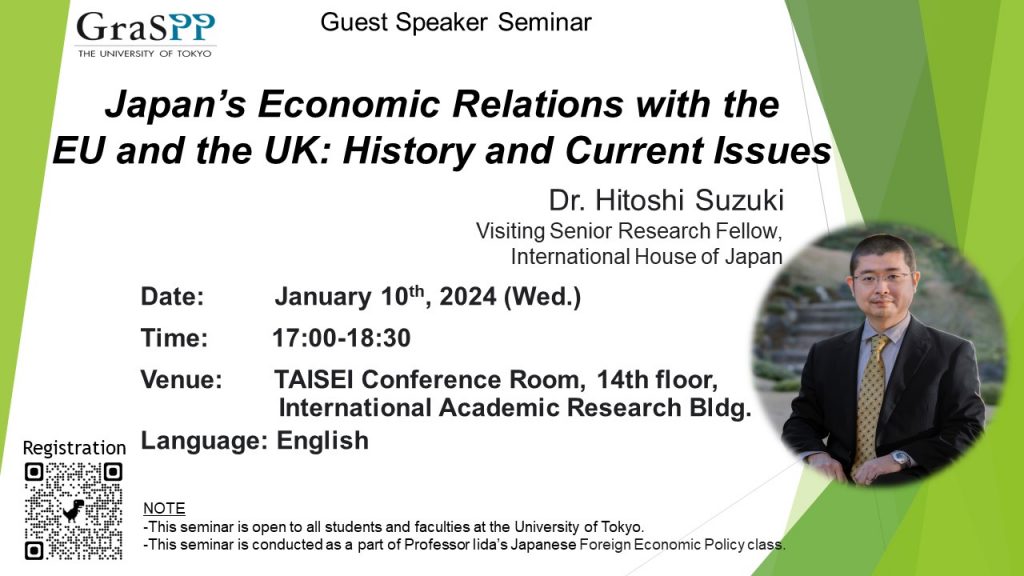
The Post-WWII history of Japan and Europe’s economic relations could be characterized by the shift from trade frictions to strategic partners of global free trade. Until the end of the Cold War, trade frictions were generated by Japan’s aggressive exports, Europe’s lack of export competitiveness, and the remaining trade barriers between both parties.
Mutual lowering of trade barriers and investments have made the friction fade away and replaced by ‘joint’ efforts of Japan and the EU tackling global issues such as aiding Central and Eastern European countries and protecting the environment. Brexit and populism in member states cast a dark shadow.
Date
January 10th, 2024 (Wed.)
Time
17:00-18:30
Venue
TAISEI Conference Room, 14th floor, International Academic Research Bldg.
Language
English
Registration
Needed. Please register here
Note
-This seminar is open to all students and faculties at the University of Tokyo.
-This seminar is conducted as a part of Professor Iida’s Japanese Foreign Economic Policy class.
Speaker’s profile
Hitoshi SUZUKI (Ph.D.) was an Associate Professor at the Graduate School of International Studies and Regional Development, University of Niigata Prefecture, Japan.
He received his Ph.D. in History and Civilization from the European University Institute in December 2007 and has focused on Japan’s relations with the EC/EU, as well as Japan’s auto and aerospace industry in Europe. He was a visiting fellow at the Monash European and EU Centre, the London School of Economics and Political Science. He was Deputy Director of the Economic Partnership Agreement Division of the Ministry of Foreign Affairs Japan. As of December 2021, he serves as a Visiting Fellow and Staff Director of the Asia Pacific Initiative. He is currently a Visiting Senior Research Fellow at the Institute of Geoeconomics, International House of Japan.
https://apinitiative.org/en/experts/suzuki-hitoshi/

